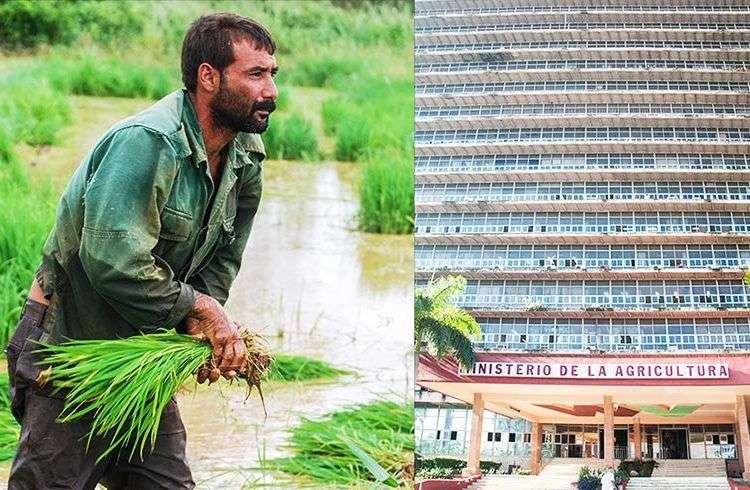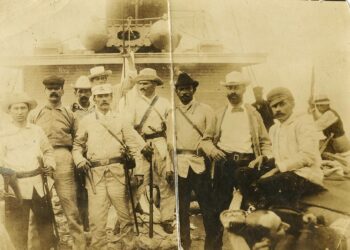Finally, the Cuban government decided to throw a lifeline to agriculture, eliminating the bureaucracy that stifles it. 6400 administrative jobs disappear along the entity responsible for distributing agricultural production.
It is a bureaucratic apparatus, known as Acopio “Collection” which was always noted for its inefficiency, being responsible for the loss of more than one crop and the bad shape almost all products had when they reach the consumers.
Now it seems they are attacking the underlying problem, there are too many bosses in agriculture. You don’t make the land produce by sitting on a desk and writing absurd orders such as forbidding farmers to build a house on their farm.
The history of nonsense is huge, from a retired General who was not allowed to import a tractor he was given away, to the order to save wood by making shorter sticks for living fences, which would kill them because livestock are eating sprouts.
Probably, there isn’t in Cuba a ministry larger bigger than the agriculture one and few equals it in results. Its headquarters is a huge building in Havana, near the center of political power but far from the field and peasants.
Maybe that’s why it took years to hear the peasants when they claimed that the prices of the tools and supplies were lowered or explained it to work the land is essential to live within the estate, sleep in it.
Only a bureaucrat with state automobile can think that a farmer will live in town or in the city and each morning travel to their land to work. Everyone knows that the first night they would lose all their animals.
A governing body of agriculture
During these 6 years of reforms, the government had tried this gigantic apparatus to transform itself and to take agriculture out of the crisis that has sunk it after decades of inefficiency, bureaucratic mechanisms, excessive centralization and controls.
However, things do not improve agriculture so the government seems to want to out root the evil, preventing crops from rotting in the fields, the farmers from not collecting what they are owe and milk from disappearing while thousands of cows die of hunger.
A few days ago the Secretary General of the Cuban Workers Federation (CTC) recalled the country spends 2 billion dollars on food imports. Right next to him, the Agriculture Minister simply said that rice production had increased.
However, Vice President Marino Murillo told parliament that nearly a third of the land in the hands of state-owned enterprises are idle, while in the private and cooperative sector 90 percent of the farms are producing.
Agriculture Minister Rodriguez Rollero said that the functions of cooperatives, which represent 66 percent of agriculture workers and where most of the agricultural and forestry productions are performed in Cuba, will be expanded.
They want to eliminate the obstacles to agricultural development. That’s good because while the ministry wants to continue to determine by decree every detail it can hardly draw focus on major national policies and be of service to producers.
To develop this role it doesn’t need hundreds of thousands of officials but a small group of capable specialists. The rest can be given the opportunity to join a cooperative or receive land in usufruct, places where they can certainly decide on all the details that they love.










